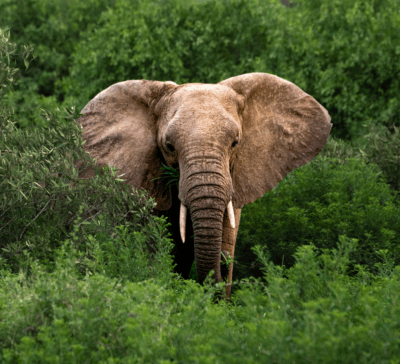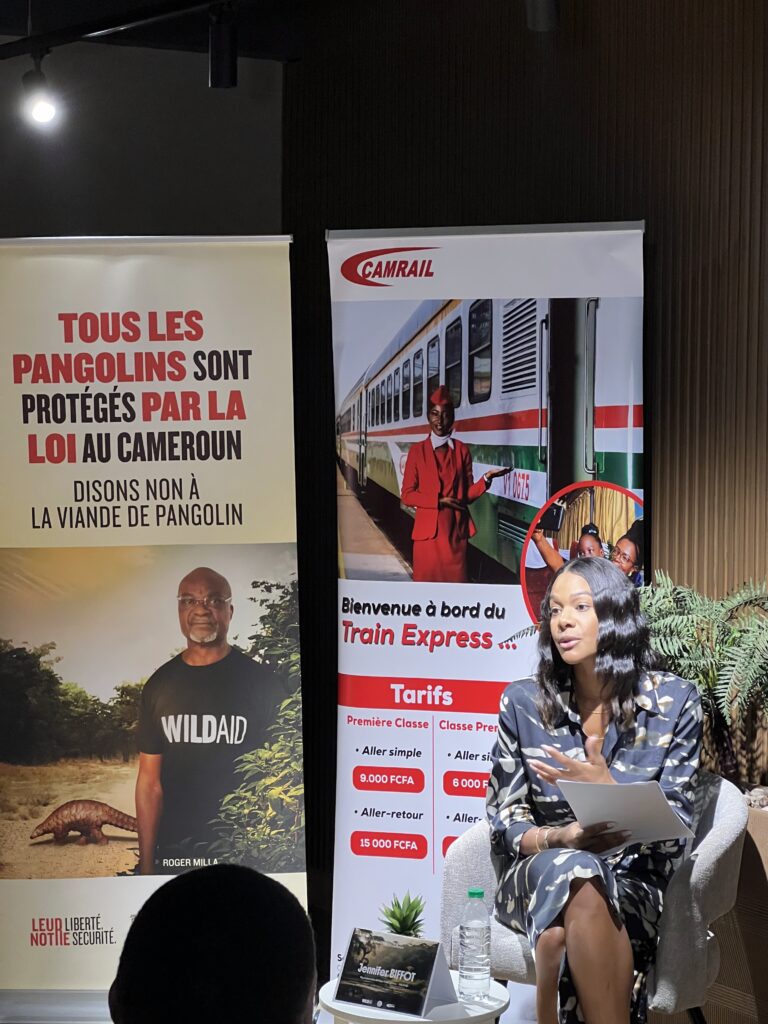
Cameroon’s Ministry of Forestry and Wildlife (MINFOF), with the support of WildAid and Camrail, launched a PSA on Thursday, July 17, aimed at raising awareness about a new law protecting the nation’s forests and wildlife.
The law (No. 2024/008), passed on July 24, 2024, significantly bolsters the protection of Class A protected species, including gorilla, chimpanzee, elephant, lion, giraffe, leopard, and all three species of pangolin found in the country, as well as dozens of bird species such as the Yellow-casqued Wattled Hornbill and African Grey Parrot.
It stipulates stiff penalties for slaughtering, capturing, keeping, or marketing Class A protected animals, including prison sentences of up to 20 years and fines of up to 50 million francs (around $89,000).
Using the message “Let’s make the right choice and follow the law,” the PSA underscores the importance of protecting Cameroon’s forests and wildlife for future generations and highlights the tougher sentences under the new law for hunting, killing, buying, selling, or consuming protected species. It will air on television, be distributed on social media, and be shown on Camrail trains on the Yaoundé–Douala line from Thursday.
“We are proud to launch this new video which we hope will reach people in the heart of their daily life,” said Jennifer Biffot, WildAid’s Francophone Africa Representative. “Widespread awareness is the key to implementation and is a necessity. Visibility equals understanding, and understanding leads to change.”
Cameroon’s forestry policy “aims to ensure the conservation and protection of the country’s forest heritage in all its biological diversity, while also boosting the economy by revitalizing the forest sector,” said Joséphine Nkoum, the head of the forestry control brigade at MINFOF.


The new law takes that policy forward in three key ways, improving access to wildlife resources, involving local communities in the management of wildlife and habitats, and strengthening criminal and administrative sanctions for forest and wildlife offenses, she said.
Nkoum said the new law “reflects the Cameroonian people’s will to strengthen the protection of their wildlife heritage and enhance its contribution to the country’s economy, thereby improving the living conditions of the population.”
“Such an objective cannot be achieved without the participation of the general public and, in particular, the local communities,” she added. “Hence the need to take all necessary measures to ensure the dissemination and appropriation of the new law.”
The video will air daily in Camrail trains for six months, reaching thousands of rail passengers every day, as well as many more through other media.
“Camrail plays a key role in the fight against the trafficking of protected wildlife species,” said Jean Bedim Nyambi, the company’s Head of Environmental and Social Management. “Under the new law, the company is proud to support WildAid’s awareness campaign by rolling out this new ad on the 13 screens of the Express Train.
Nearly 80,000 passengers use this train every month, he said, calling it a “strategic audience” for relaying messages about biodiversity protection. “This mobilization is part of a sustainable environmental policy that we have been implementing for several years,” he added.
This new law marks a major step forward in protecting Cameroon’s biodiversity, reinforcing penalties for illegal possession, trafficking, and commercialization of protected species. However, the success of this law depends not only on enforcement but also on how well it is known and understood by the public.
The more Cameroonians see and hear this message, the better they will understand the law and their responsibilities, Biffot said. This is why this campaign focuses on nationwide outreach, using public transport as a direct and effective communication platform.
With this campaign, the Ministry of Forestry and Wildlife and WildAid are taking the message directly to the public, using accessible means to ensure that everyone, from students to traders and families, understands their rights and responsibilities under the law.
Stay in touch and get the latest WildAid updates.
SIGN UP